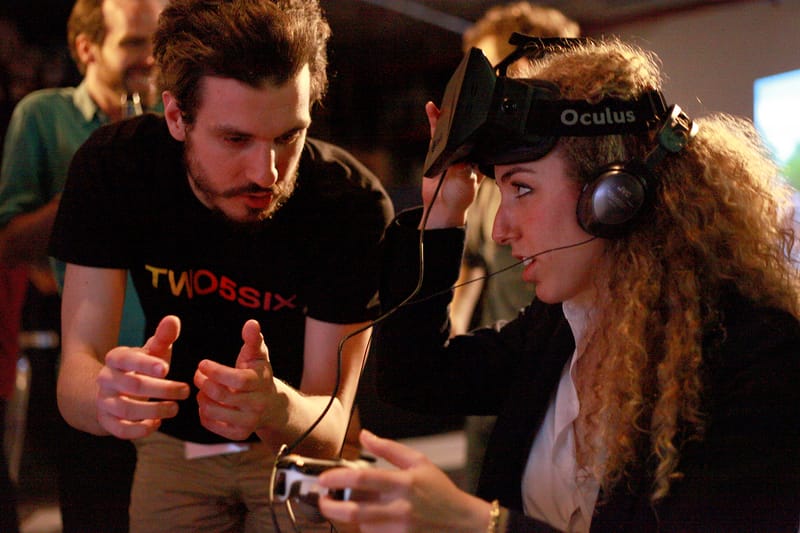Davey Wreden quietly released The Beginner’s Guide, his follow-up to The Stanley Parable. It’s a quick and thought-provoking game, one that reveals its secrets quietly to players and leaves ideas rattling around in the player’s head. After Kill Screen writers started completing it, they huddled in corners to unpack the experience.
Paul King (PK): Not a dig: I think The Beginner’s Guide should have never been released.
Josh Calixto (JC): What makes you say that?
PK: Because then it could have existed as a pure conversation between the team and themselves. But mostly as an extension of Wreden. I was going to say between the artist and himself, but I didn’t want to exclude everybody who worked on it—though it’s definitely his ship.
JC: I agree with you that it’s operating as more of a self-reflection, but I’m curious as to who Wreden is trying to find in the mirror.
PK: Coda is Wreden for sure, no matter the waffling in some reviews I’ve read. But it struck me as a book about writer’s block! I think there’s a really great conversation that’s going on in there that I loved for about 3/4 of the way through: it’s about a game creator creating for the self and a game creator creating for an audience. I think the part where it fell flat for me is that at a certain point that Wreden-the-game-creator-creating-for-an-audience started to conflate himself with an actual audience. And by releasing the game with that narrative wrapper, it implicates the “real” audience of The Beginner’s Guide.
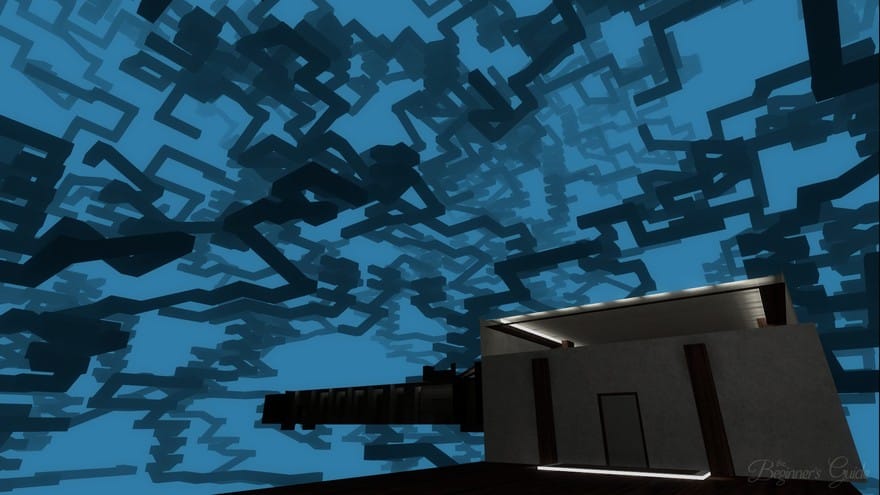
JC: I definitely don’t think the ending clicked the way it maybe should have, but I like the way it raises more questions about the relationship of audience and creator. I also appreciate Wreden’s performance in that final sequence. You rarely get raw emotion like that in games, and even if it wasn’t coming from “The Real Wreden”—as in, it was all an act—his desperation in that scene is palpable. As for that opening tour through Coda’s early work, that stuff sucked me in and kept me there even when the game started to fall apart at the end.
PK: The entire time I was playing it I was just wishing that he had just released the weird little games on their own. Look at Increpare’s stuff: bite-sized ruminations that satisfy both the creator-self and an audience. They’re powerful, succinct, and just like certain moments want to in Beginner’s Guide, can and do stand on their own. Take for instance the stair and hour-long-jail-cell vignettes.
JC: I agree that the narration kind of obscured the meaning in these smaller vignette games, but I like the idea of fleshing out these works while playing through them—even if it does end up serving as a kind of self-gratification.
I was just wishing that he had just released the weird little games on their own
PK: When I say I wish The Beginner’s Guide hadn’t been released, I don’t mean I hated it—I just think now it’s tangled up in a weird web where it can’t do what he needs it to do for him.
JC: Yeah, I can see that. Also, I agree with the people who say that the epilogue was unnecessary, although I want to reiterate my opinion that the first three-quarters or so were spectacularly good. It was the videogame equivalent of watching a Herzog documentary, or listening to a particularly riveting episode of This American Life. It did a great job of raising these big questions about narrative and structure in games, and then played with those ideas in a way that was more fleshed-out than anything else we typically get in the medium.
PK: I think the audience/creator question was what frustrated me, because I feel like that splinters away from what I see as the main thrust. So you have this idea of the two Wredens: private, Coda Wreden who creates for himself, and then the Davey Wreden who needs to release and satisfy not an audience, but his lust for an audience. But then it kind of loses track of that duality, and moves towards this thing that puts a “Creator” and an “Audience” in opposition.
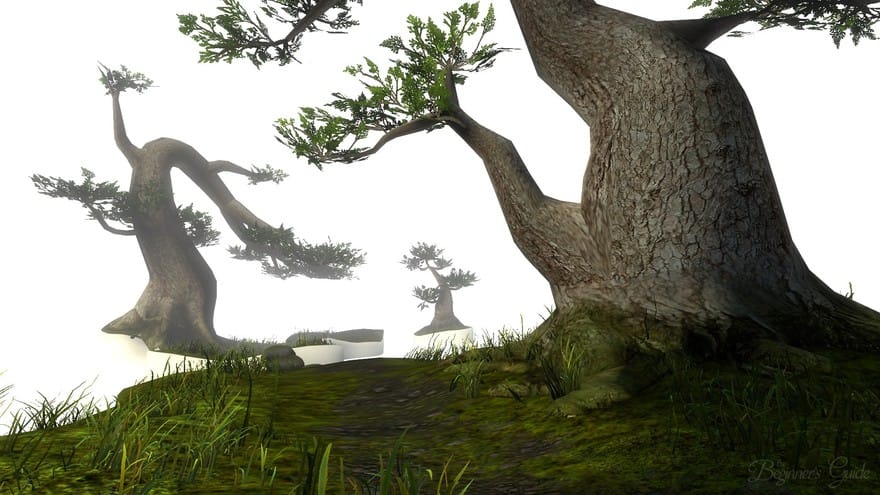
JC: That’s definitely taking it a step further than the level I’m reading it on. I see this as a fictional story about a guy named Wreden and a guy named Coda, where the central theme is the relationship between audience and creator. I don’t think Wreden is actually struggling with this stuff in the ways that even the game itself might suggest.
PK: I guess I’m not totally convinced of that—how do you interpret “audience Wreden” putting in light posts?
JC: I think that’s Wreden the character, as someone who wants to see more in these games, trying to add meaning to them. It’s an implication of the act of reading altogether. Everyone has a tendency to try and shoehorn meaning into the artist’s work, even when it doesn’t belong.
PK: I think Coda and Wreden are two Janus-faces of the artist-as-creator coin, and you think they are two Janus-faces of the artist and audience coin. I guess I wasn’t prepared for Coda to exist as a fictional construct for the purpose of the conversation of audience role.
JC: Well if Coda isn’t real, who says Wreden is? Especially when you take into consideration the fact that this entire thing is written by him and his team. He’s reading all these lines and performing it off a script—not acting or reacting organically. I think that’s what I found kind of off-putting about that ending monologue where he’s addressing Coda directly. It’s meant to feel organic but it’s clearly performance.
if Coda isn’t real, who says Wreden is?
PK: That’s a fair point! But it’s also a pretty intentional choice to use himself as a character—it also definitely adds an uncomfortable layer to the earlier compliments about Coda’s work. Do you think that the individual games were created solely for The Beginner’s Guide or do you think that they are experiments that Wreden tried and thought failed?
JC: It’s likely a mix of both. He’s clearly altered them, not just for the game but for the trailer as well. It looks like he made a couple isolated builds just to put that trailer together.
PK: That’s what I’m thinking—the ones in the dark woods with the signs felt like a construct for a fictional timeline. Others felt like almost-or-fully-scrapped ideas. Did you notice that when you end up at the bottom of the well it’s the same … ground footprint … as the dark woods?
JC: I did not! I’ll have to play it again, but I love that it’s focused to the point where you can really go back and pluck through for symbols that way. Wreden and Co. made it very easy to hop into a specific scene and try to delve into what’s going on, which makes the whole thing feel more literary. The question is whether I’m supposed to do that, or if that’s trying to force meaning into places it shouldn’t go, etc. etc.
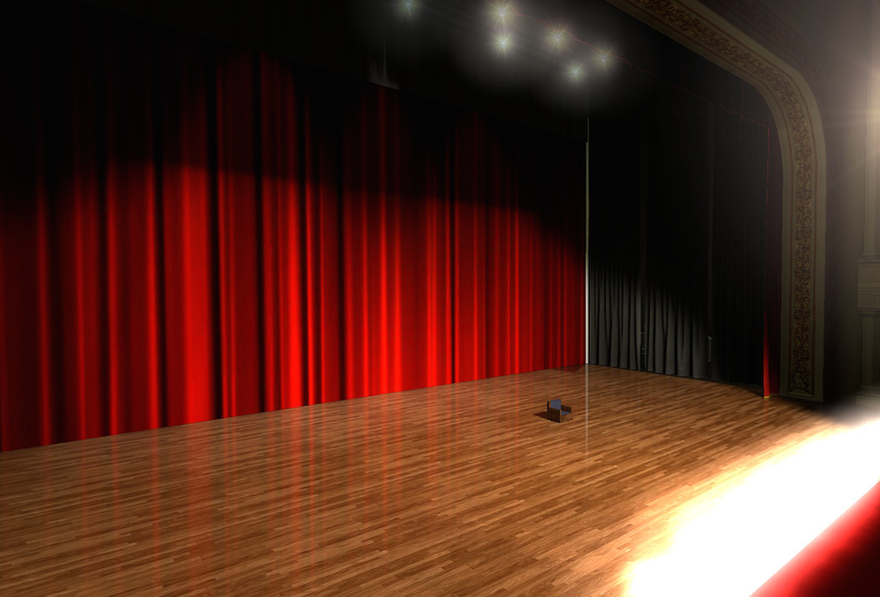
PK: Yeah! I feel like emailing him is a big trap.
JC: You know, a good analogue for this is that movie Catfish. That film starts out as a sincere quest to connect with another human being, and ends up being a very warped commentary about relationships and social media.
Jake Muncy, magically entering the room (JM): My reading on The Beginner’s Guide is that it’s both a sincere attempt to connect, and an anxious meditation on the limitations of that attempt. My immediate feeling is to be both moved and entirely untrusting.
JC: So is Wreden fictional or himself? Seems you think it’s a mix of both?
JM: Yeah, I think it’s both. Anytime you put yourself into a work like that, it’s inherently fictional. But it also reads to me as an attempt to push against the boundaries of that? Like, an appeal to emotion and to sincerity—to the sheer raw emotive aspect of the game—is still there, and that still points toward a degree of intimacy that I can’t really separate from Wreden choosing to self-insert.
My immediate feeling is to be both moved and entirely untrusting
JC: Yeah I agree, I guess I just feel like it’s more fictional—I see the story as a, uh, parable. It’s filled with thoughts and feelings that have probably shot through Wreden’s head at some point, but I’m not sure whether he’s actually been in the same shoes as the borderline-manic Coda we see toward the end of the game.
PK: I still think it’s a veiled account of himself—didn’t you feel like when he “releases” Coda’s games it’s basically talking about how weird he felt releasing The Stanley Parable? I felt like there was a reclusive afraid-of-fame thing going on there. But maybe I went a little too far reading into it. I might have to go back and take it more for face value.
JC: I think when I imagine the scenario of Wreden coming up with this game, it’s meant to answer the question of: “How much could a person possibly derive about my character from playing my game?” And I imagine the entire game as an attempt to answer that question. I mean, look what we’re doing right now.
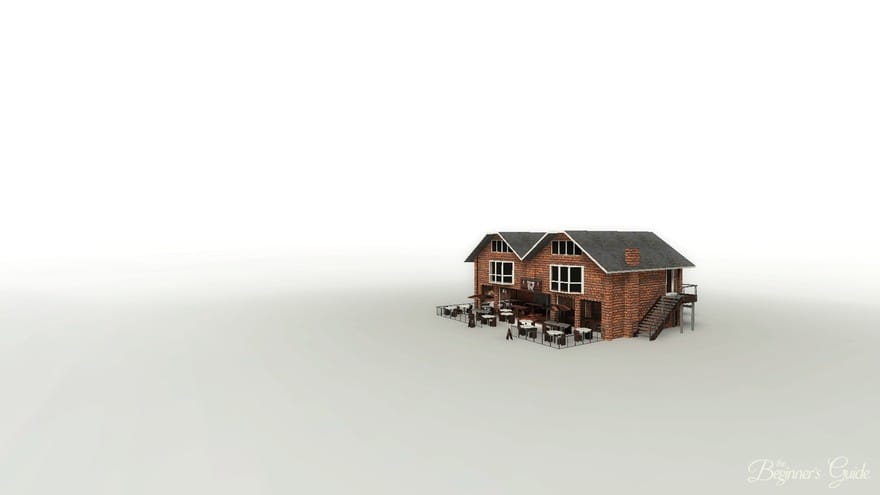
PK: I thought it was, “How do I make games that satisfy me as a private individual and also as a person who yearns to release them?” But then it’s also probably designed to create this exact conversation. I’m not your pawn Wreden!
JM: I do also think it’s about the anxiety of creation, totally—the part about how having an audience corrupts and changes the practice of creation. That seems like something that we’re supposed to imagine Wreden didn’t expect, that disturbed him.
JC: Yes, absolutely—but whether that’s something he actually struggles with to the extent that he plays it up in the game? Hard to know.
PK: That’s why I’m frustrated by the idea of its release. I’m immensely glad to have played it, but it feels like a private, personal conversation laid bare. Like a diary about creating before, during, and after The Stanley Parable.
JM: It’s a game that tries to frustrate and question the very idea of authorial intent. It dramatizes a person trying to do a biographical critical reading of a person’s work and utterly failing, while also challenging us to try to do better, which might itself by a trick, a “maybe don’t” sort of challenge.
I’m not your pawn Wreden!
JC: Well the funny thing is that Wreden has absolute authorial control in a way that I’ve never really seen before. The curator conceit makes the game a pure on-rails construct, but it grants these tiny games such a sense of personality, like they’re living and breathing with Coda’s ideas. They’re fleshed-out, but the pacing is so brisk that the experience of playing never becomes suffocating. Of course, that entire act of curation is indicted by the game’s conclusion, but I could have played that first section for hours.
PK: I just don’t think Wreden’s trying to do a critical reading with his fictional self—if the fictional Wreden is supposed to be the audience/interpreter, what’s the crossover when he talks about releasing/modifying/making it their own? Do you think he’s saying that’s what critics do when they write about games?
JC: I think it’s what anybody does when they attempt to interpret or find meaning in a work.
JM: I think the latter, what Josh said.
PK: I could get behind that. It jives with the lampposts.
JM: I don’t think it’s self-consciously about critics. But I think critical conversations are part of what’s implicated.
JC: One thing I’ve been thinking about a lot this week has been the issue of separating the observational from the experiential in games. And Wreden does such a bang-up job of combining them here, in that you’re always observing this relationship between Wreden/Coda, while simultaneously experiencing it firsthand. I think it’s brilliant.
PK: Do you see any of The Stanley Parable in there—either actual, fictional, or implied?
JC: I saw The Stanley Parable a lot in the aesthetics—particularly the cubeheads and the bold typefaces. It’s also built in Source, which makes sense in the context of his relationship with Coda, but makes even more sense as a game that Wreden came up with himself.
At this point all three people pretty much decide to go independently get drunk.





